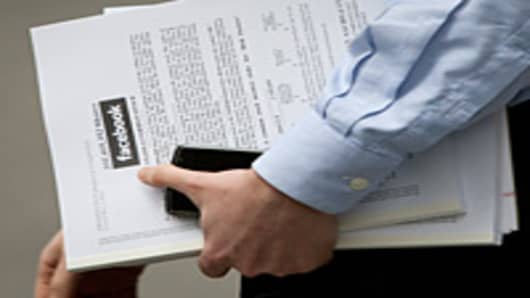They argue that this is the problem with machines ruling: On the Nasdaq, with no central human being stepping in and saying, stop ... we need to take a break ... there can be a tendency for errors to compound themselves.
Nasdaq will certainly argue that it has the ability to step in as well, but for whatever reason it decided not to.
There are other arguments: NYSE is an auction market, while Nasdaq is negotiated between dealers and market makers. With NYSE, you can get an initial public offering open usually within 15 minutes of the open, while at the Nasdaq an IPO takes more than an hour because of the negotiations.
Oh, the lawsuits, the lawsuits. What about the brokerage firms that took orders from small customers? Say I am a customer of Charles Schwab, and I place an order to buy or sell at the open. if Schwab accepts the order, and I don't get that order, am I still entitled to be filled at the opening price? The argument is that the customer made the order, Schwab took it in good faith, so the customer is entitled to the opening price. If I don't get a report, that's the broker's problem.
One final point: Why didn't Nasdaq halt trading in Facebook shares ? Did Nasdaq know that there was a problem with the order messaging system? If so, why did it go ahead and open it, rather than halt trading? If not, it certainly knew that there was a problem immediately after the open. Why didn't it halt it the stock?
The most logical answer is, that Nasdaq believed it could sort all this out quickly after the open, and that halting would have caused even greater problems.
One thing's for sure: you can bet this will be part of NYSE presentation on IPOs going forward.
Elsewhere:
1) Cooper Industries jumps 26.8 percent after peer Eaton Corp. (up 4.2 percent) announced it will buy the electrical company in a deal that is likely to close in the second half of this year. The deal is valued at $11.8 billion, with Cooper shareholders set to receive $39.15 per share in cash and 0.775 in shares. Eaton sees the deal adding 65 cents and 75 cents to full-year earnings per share in 2014 and 2015, respectively. Eaton secured a $6.75 billion bridge financing commitment from Morgan Stanley and Citigroup.
2) One story that caught my eye over the weekend was this blurb from Reuters: "Copper stocks in Shanghai's bonded storage, the biggest in China, are now double the 300,000 metric tons average of the past four years and iron ore stocks are about a third more than their 74 million metric tons average."
_____________________________
Bookmark CNBC Data Pages:
_____________________________
Want updates whenever a Trader Talk blog is filed? Follow me on Twitter: twitter.com/BobPisani.
Questions? Comments? tradertalk@cnbc.com



